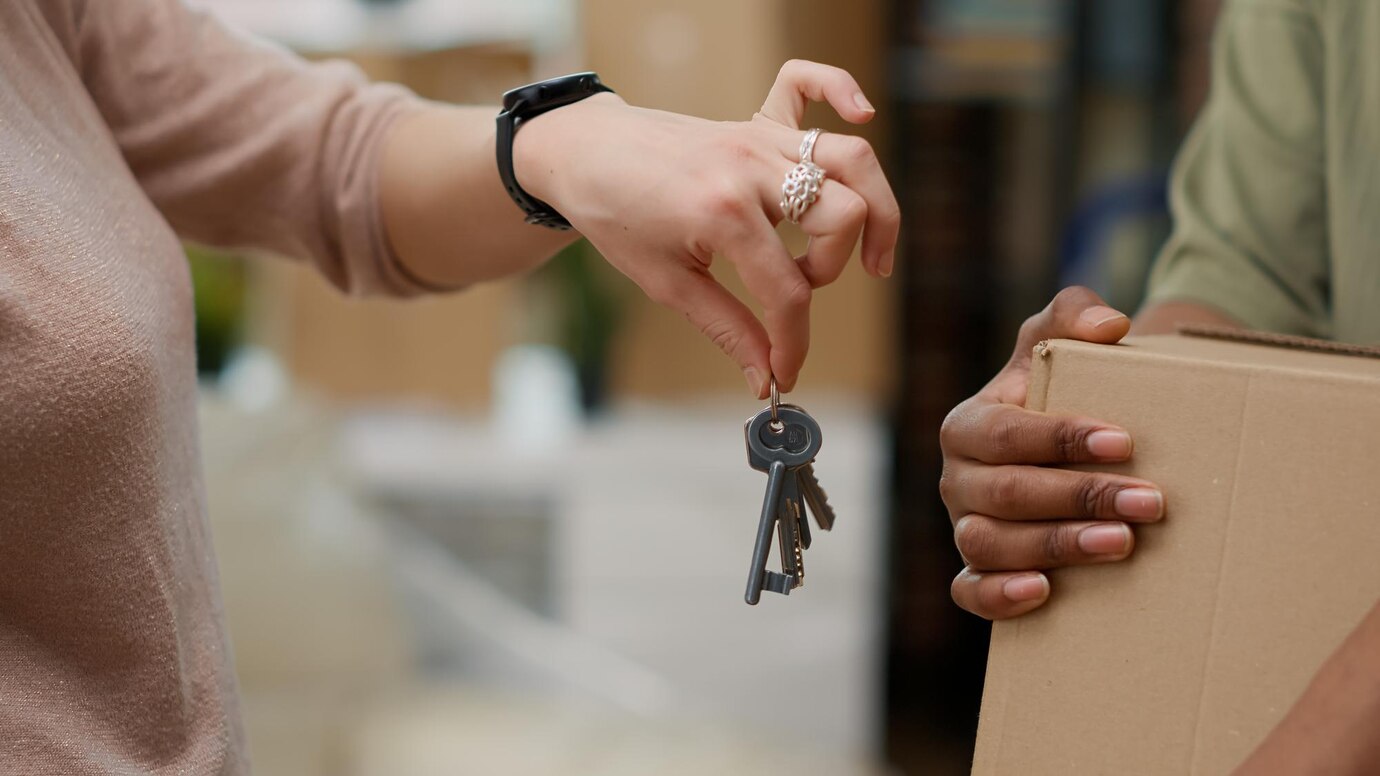
The home buying process in Winnipeg involves several key steps, from assessing your financial readiness to closing the deal on your dream property. This comprehensive guide will walk you through each stage, providing local insights and practical advice to help you navigate the Winnipeg real estate market with confidence.
Key Takeaways
- Start by getting a mortgage pre-approval to understand your budget
- Research Winnipeg neighborhoods to find the best fit for your lifestyle
- Work with a local real estate agent who knows the Winnipeg market
- Be prepared for bidding wars in popular areas of the city
- Consider the impact of Winnipeg’s climate on home maintenance
- Factor in property taxes and potential school catchment areas
- Don’t skip the home inspection, especially for older Winnipeg homes
- Understand the importance of title insurance in Manitoba
- Be aware of closing costs specific to Winnipeg real estate transactions
Assessing your financial readiness

Before you start house hunting in Winnipeg, it’s crucial to get a clear picture of your financial situation. This means taking a hard look at your savings, income, and credit score. Winnipeg’s housing market can be competitive, so being financially prepared will give you an edge.
Saving for a down payment
In Winnipeg, like the rest of Canada, you’ll need a minimum down payment of 5% for homes priced under $500,000. However, aiming for a 20% down payment can help you avoid paying for mortgage insurance. Start saving early and consider opening a Tax-Free Savings Account (TFSA) to grow your down payment fund tax-free.
Understanding mortgage options
Winnipeg homebuyers have access to various mortgage products. Fixed-rate mortgages are popular for their stability, while variable-rate mortgages can offer lower initial rates. Talk to a local mortgage broker who understands the Winnipeg market to find the best option for your situation.
Getting pre-approved for a mortgage
Obtaining a mortgage pre-approval is a smart move in Winnipeg’s fast-paced real estate market. It gives you a clear budget and shows sellers you’re a serious buyer. Local lenders familiar with Winnipeg’s economy can often offer competitive rates and terms tailored to the local market conditions.
Researching Winnipeg neighborhoods
Winnipeg is a city of diverse neighborhoods, each with its own character and amenities. Take the time to explore different areas to find the one that best suits your lifestyle and budget.
Popular areas for first-time homebuyers
Neighborhoods like St. Vital, Transcona, and St. James are often attractive to first-time buyers due to their mix of affordable housing and good amenities. These areas offer a balance of older homes with character and newer developments with modern features.
Up-and-coming neighborhoods
Keep an eye on areas like West Broadway and the West End, which are seeing revitalization efforts. These neighborhoods can offer good value for buyers willing to invest in an area on the rise.
Considering school districts
If you have children or plan to in the future, research Winnipeg’s school catchment areas. The Louis Riel and Pembina Trails School Divisions are highly regarded, which can influence property values in their catchment areas.
Working with a Winnipeg real estate agent
A knowledgeable local real estate agent can be invaluable in navigating Winnipeg’s housing market. They can provide insights into neighborhood trends, property values, and potential issues specific to Winnipeg homes.
Finding the right agent
Look for an agent with experience in the specific Winnipeg neighborhoods you’re interested in. Ask for recommendations from friends or family who’ve recently bought in the area, and don’t hesitate to interview multiple agents to find the right fit.
Understanding agent commissions
In Winnipeg, the seller typically pays the real estate commission, which is split between the buyer’s and seller’s agents. However, it’s always good to clarify this with your agent upfront to avoid any surprises.
House hunting in Winnipeg
With your finances in order and a real estate agent by your side, it’s time to start looking at homes. Winnipeg’s market can move quickly, so be prepared to act fast when you find a property you like.
Using online resources
Websites like Realtor.ca and local Winnipeg real estate sites can help you get a sense of what’s available in your price range. Many Winnipeg agents also have their own websites with exclusive listings.
Attending open houses
Open houses are common in Winnipeg, especially on weekends. They’re a great way to see multiple properties and get a feel for different neighborhoods without the pressure of a private showing.
Considering property age and condition
Winnipeg has a mix of historic homes and new builds. Older homes may offer character but could require more maintenance, especially given Winnipeg’s harsh winters. Factor in potential renovation costs when considering older properties.
Making an offer on a Winnipeg home

When you find a home you love, it’s time to make an offer. In Winnipeg’s competitive market, you may need to act quickly and decisively.
Understanding the offer process
Your real estate agent will help you draft an offer that includes the purchase price, conditions, and any inclusions or exclusions. In Winnipeg, it’s common to include conditions like a satisfactory home inspection and financing approval.
Negotiating in a competitive market
Winnipeg’s market can be competitive, especially for desirable properties. Be prepared for the possibility of multiple offers and bidding wars. Your agent can advise you on strategies for making your offer stand out.
Dealing with counter-offers
Sellers may come back with a counter-offer. This is normal in Winnipeg’s real estate transactions. Work with your agent to decide on your best course of action, whether it’s accepting, countering again, or walking away.
The home inspection process
Once your offer is accepted, it’s time for the home inspection. This is a crucial step in the Winnipeg home buying process, given the city’s older housing stock and extreme climate.
Choosing a home inspector
Look for a licensed home inspector who’s familiar with Winnipeg’s housing types and common issues. Your real estate agent may have recommendations, but it’s also worth asking for references and checking online reviews.
What to expect during the inspection
The inspector will examine the home’s structure, systems, and major components. Pay special attention to the foundation, as Winnipeg’s clay soil can cause shifting. Also, look for signs of water damage, which can be common in older Winnipeg homes.
Addressing issues found in the inspection
If the inspection reveals significant issues, you may be able to negotiate repairs or a price reduction with the seller. In some cases, you might decide to walk away from the deal if the problems are too severe.
Finalizing your mortgage
With a successful home inspection behind you, it’s time to finalize your mortgage. This involves providing your lender with all necessary documentation and potentially renegotiating terms based on the actual purchase price.
Gathering required documents
Your lender will need proof of income, employment verification, and details of your assets and liabilities. In Winnipeg, you may also need to provide information about property taxes and heating costs, which can be significant.
Understanding mortgage terms
Make sure you fully understand the terms of your mortgage, including the interest rate, payment schedule, and any penalties for early repayment. Don’t hesitate to ask your lender or mortgage broker to explain any terms you’re unsure about.
Securing mortgage insurance if required
If your down payment is less than 20%, you’ll need to secure mortgage insurance through the Canada Mortgage and Housing Corporation (CMHC) or a private insurer. This cost is typically added to your mortgage payments.
Closing the deal
The final step in buying your Winnipeg home is closing the deal. This involves several important steps and considerations.
Working with a real estate lawyer
In Manitoba, you’ll need a real estate lawyer to handle the legal aspects of your home purchase. They’ll review all documents, conduct a title search, and ensure all legal requirements are met.
Understanding closing costs
Be prepared for closing costs, which can include legal fees, land transfer taxes, and title insurance. In Winnipeg, you’ll also need to factor in property tax adjustments and utility setups.
Final walkthrough and key exchange
Before closing, you’ll have a chance to do a final walkthrough of the property. On closing day, you’ll sign all necessary documents, pay any remaining funds, and receive the keys to your new Winnipeg home.
Preparing for homeownership in Winnipeg

Owning a home in Winnipeg comes with unique responsibilities and considerations. Here are some things to keep in mind as you settle into your new home.
Winterizing your home
Winnipeg’s harsh winters mean you’ll need to take steps to protect your home from the cold. This can include insulating pipes, sealing windows and doors, and ensuring your heating system is in good working order.
Understanding property taxes
Winnipeg’s property taxes are calculated based on the assessed value of your home. Be prepared for this ongoing expense and consider setting up a monthly payment plan with the city to spread out the cost.
Getting to know your neighborhood
Take time to explore your new neighborhood and get to know your neighbors. Winnipeg is known for its friendly community spirit, and building connections can enhance your homeownership experience.
| Winnipeg Neighborhood | Average Home Price | School Rating | Transit Score |
|---|---|---|---|
| River Heights | $450,000 | 8/10 | 7/10 |
| Osborne Village | $350,000 | 7/10 | 9/10 |
| Transcona | $300,000 | 6/10 | 6/10 |
| Bridgwater Forest | $500,000 | 9/10 | 5/10 |
| St. Boniface | $400,000 | 8/10 | 8/10 |
| Closing Cost | Typical Range in Winnipeg |
|---|---|
| Legal Fees | $1,000 – $1,500 |
| Land Transfer Tax | 0.5% – 2% of purchase price |
| Title Insurance | $200 – $300 |
| Home Inspection | $400 – $600 |
| Property Tax Adjustment | Varies by property |
- Common winter maintenance tasks for Winnipeg homes:
- Cleaning gutters to prevent ice dams
- Inspecting and servicing the furnace
- Checking for drafts around windows and doors
- Disconnecting outdoor hoses and shutting off exterior water valves
- Clearing snow from walkways and driveways regularly
Sources
- According to a report by the Winnipeg Real Estate Association, the average home price in Winnipeg was $329,330 in 2020, a 13.5% increase from the previous year.
- Effective home-buying strategies in Winnipeg include getting pre-approved for a mortgage before house hunting, working with a real estate agent, and being flexible on location and property type.
- First-time homebuyers in Winnipeg may be eligible for various government programs and incentives, such as the Manitoba Home Buyers’ Tax Credit and the Home Buyers’ Plan.
- It is also recommended for homebuyers in Winnipeg to conduct thorough inspections of properties before purchasing, including a home inspection, water inspection, and radon testing.
By following this guide, you’ll be well-prepared to navigate the home-buying process in Winnipeg. Remember, every home purchase is unique, so don’t hesitate to seek advice from local professionals as you embark on this exciting journey. With the right preparation and support, you’ll soon be settling into your new Winnipeg home.
You can visit our website or contact us!